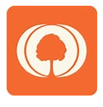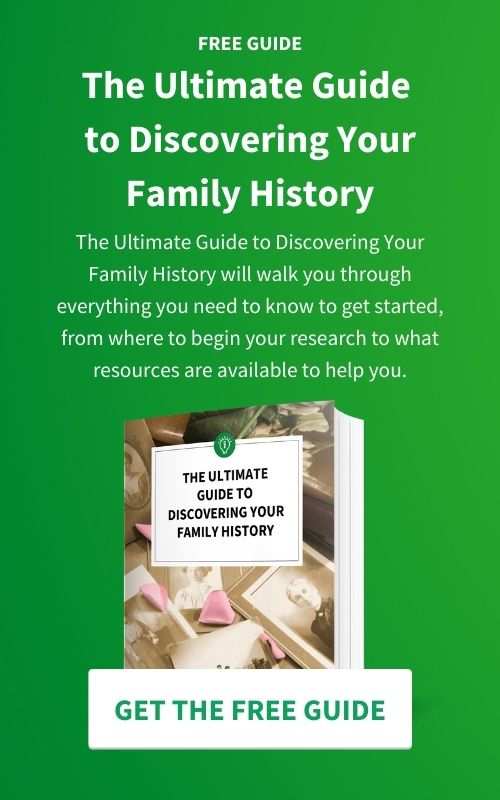Ancestry.com vs MyHeritage
Uncovering our family history has never been easier, thanks to the power of technology and online platforms dedicated to genealogical research. In the year 2023, two prominent players in the field are Ancestry.com and MyHeritage. These platforms provide individuals with the tools and resources necessary to delve into their ancestral past, access vast databases of records, and gain insights into their ethnicity and migration patterns through DNA testing. However, choosing the right platform that suits your specific needs and research preferences can be a daunting task. In this blog, we will compare and evaluate the key features, user experience, unique elements, and costs of both Ancestry.com and MyHeritage, empowering you to make an informed decision in your family history journey.
When it comes to genealogical research, the size and scope of a platform's database of records and resources play a crucial role. Ancestry.com has long been recognized for its extensive collection, boasting a wide range of records such as census data, birth, marriage, and death records, military records, and more. Its vast database allows researchers to uncover valuable information about their ancestors. On the other hand, MyHeritage, while not as extensive as Ancestry.com, has a significant focus on international records. This makes it a valuable resource for individuals with diverse ancestral backgrounds, particularly those with European or Jewish heritage. By understanding the scope and accessibility of the available data on each platform, you can determine which aligns better with your research goals.
DNA testing has become an integral part of family history research, providing individuals with insights into their genetic heritage and potential connections with relatives. Ancestry.com's DNA testing service, AncestryDNA, is renowned for its extensive DNA database, increasing the chances of finding accurate ethnicity estimates and connecting individuals with potential relatives. MyHeritage also offers DNA testing, providing ethnicity estimates and a unique feature called the Theory of Family Relativity™. This tool helps users discover connections to ancestors through shared DNA matches, offering a distinct approach to uncovering family relationships. Examining the quality and variety of DNA testing kits, as well as the pricing and process involved, is crucial in determining which platform best meets your DNA testing needs.
Understanding how each platform handles ethnicity estimates, migration patterns, and regional insights is essential for gaining a comprehensive understanding of your ancestral heritage. Ancestry.com offers a detailed breakdown of ethnicity percentages, including subregions and migration patterns. This feature allows users to explore the migratory paths their ancestors may have taken, providing a deeper understanding of their family's journey. Similarly, MyHeritage offers ethnicity estimates and provides regional insights and migration maps. Comparing the approaches and depth of regional insights on each platform can help you decide which aligns more closely with your specific interests and goals in understanding your family's ethnic origins and migration patterns.
Comparing the Key Features of
Ancestry.com and MyHeritage


Database Size and Access:
When it comes to exploring your family history, the size and scope of a platform's database of records and resources are paramount. Ancestry.com has long been a leader in this regard, boasting an extensive collection of records that spans multiple regions and time periods. Their database encompasses a wealth of resources, including vital records, censuses, military records, immigration records, and much more. With over 27 billion records and counting, Ancestry.com provides researchers with a vast treasure trove of information to uncover their family's story. This breadth of data allows users to piece together the puzzle of their ancestors' lives, making it an invaluable resource for comprehensive genealogical research.
While Ancestry.com's database is expansive (over 30 billion records), MyHeritage (with its 11 billion genealogical records) takes a slightly different approach, focusing on international records. Although its collection may not be as extensive as Ancestry.com's, MyHeritage shines when it comes to European and Jewish genealogy. If you have European roots or Jewish ancestry, MyHeritage's database is an excellent resource for uncovering information specific to those regions. Additionally, MyHeritage's international reach and partnerships with archives worldwide contribute to its robust collection of records. While its database may be smaller in comparison, it still provides ample opportunities for discovering and connecting with your ancestors on a global scale. Ultimately, the choice between the two platforms will depend on the geographical regions you are most interested in exploring and the breadth of records you require for your research.
DNA Testing Kits:
Ancestry.com and MyHeritage offer DNA testing services that provide insights into your genetic heritage. AncestryDNA, offered by Ancestry.com, is known for its extensive DNA database, which enhances the accuracy of ethnicity estimates and connects individuals with potential relatives. MyHeritageDNA also provides ethnicity estimates, but its standout feature is the Theory of Family Relativity™, which helps users discover connections to ancestors through shared DNA matches.
Ethnicity Estimates, Migration Patterns, and Regional Insights:
Understanding your ethnicity, migration patterns, and regional insights is an integral part of uncovering your family history. Ancestry.com offers a comprehensive approach to ethnicity estimates, providing users with detailed breakdowns of their genetic heritage. The platform analyzes your DNA and presents ethnicity percentages that span various regions and subregions. This not only gives you a broad understanding of your ancestral makeup but also allows you to delve deeper into the specific regions from which your ancestors may have originated. Ancestry.com's ethnicity estimates are enhanced by its extensive database of historical records, enabling users to correlate their genetic heritage with documented migration patterns. By examining migration routes and timelines, users can gain insights into the journeys their ancestors took, providing a more holistic understanding of their family's history.
Similarly, MyHeritage offers ethnicity estimates based on DNA analysis. The platform provides users with a breakdown of their genetic origins, highlighting the regions and populations that contribute to their heritage. MyHeritage's focus on international records also complements its ethnicity estimates, providing users with a broader understanding of their global ancestry. Additionally, MyHeritage offers regional insights and migration maps that allow users to visualize the paths their ancestors may have followed. These features provide valuable context and help users connect the dots between their genetic heritage and historical migration patterns. Whether you're interested in exploring your European roots, tracing migration routes across continents, or understanding the cultural influences that shaped your family's story, MyHeritage's approach to ethnicity estimates and regional insights offers a unique perspective in your genealogical journey. Ultimately, the choice between Ancestry.com and MyHeritage in terms of ethnicity estimates, migration patterns, and regional insights depends on your specific research goals and the regions you are most interested in exploring within your family history.
Exploring the User Experience and Interface:
User Experience:
User experience is a vital aspect of any online platform, and both Ancestry.com and MyHeritage prioritize providing a seamless and intuitive interface for their users.
Ancestry.com offers a user-friendly experience with a polished and organized interface. Navigating through the platform is relatively straightforward, thanks to its intuitive design. The search function allows users to easily explore the extensive collection of records and resources. Ancestry.com also provides a collaborative environment, allowing users to connect with family members and other researchers to build their family trees collectively. The platform's family tree-building tools are robust, enabling users to attach records, merge duplicate entries, and make connections with other users' trees. Additionally, Ancestry.com offers features like "Hints" that suggest potential matches and additional records for individuals in your family tree, enhancing the research process.
MyHeritage also offers a user-friendly experience with a simpler interface that focuses on ease of use and accessibility. The platform's navigation is intuitive, allowing users to explore their family history with ease. MyHeritage's family tree-building tools provide collaborative features, allowing users to work together and benefit from shared research. One standout feature of MyHeritage is its Smart Matches™ tool, which automatically finds potential matches in other users' family trees. This saves time and effort in connecting with distant relatives and expanding your family tree. Overall, MyHeritage provides a streamlined and user-friendly experience that caters to individuals looking for a straightforward approach to genealogical research.
Both platforms prioritize customer support and community engagement. Ancestry.com offers an extensive help center, live chat support, and user forums where members can connect and share knowledge. MyHeritage also provides a comprehensive support system, including a help center, email support, and a dedicated community forum. The availability of robust customer support and active user communities ensures that users have the resources and assistance they need throughout their research journey.
Ultimately, the choice between Ancestry.com and MyHeritage in terms of user experience will depend on your personal preferences for interface design and the level of collaboration you seek in building your family tree. Exploring free trials and user reviews can also provide valuable insights into the user experience of each platform and help you determine which aligns best with your needs and preferences.
Family Tree Building Tools:
Both Ancestry.com and MyHeritage offer an array of tools to enhance your family history research and add depth to your ancestral narratives.
Ancestry.com provides a robust set of tools that assist users in creating captivating family stories. One notable tool is the "Story Board," which allows users to visually present their family history through a timeline format. With the Story Board, you can showcase significant events, milestones, and photos of your ancestors in a compelling and interactive manner. This feature brings your family's story to life, making it engaging for both you and your audience. Additionally, Ancestry.com offers photo restoration tools that enable users to revive old, damaged, or faded family photos. These tools utilize advanced algorithms to enhance and restore the quality of images, preserving your visual heritage for future generations. The ability to incorporate multimedia elements like storyboards and restored photos add depth and richness to your family history research on Ancestry.com.
Similarly, MyHeritage offers unique tools to enhance your genealogical journey. The platform provides a photo restoration feature, allowing users to upload and restore old family photos. By leveraging advanced algorithms and image processing techniques, MyHeritage's photo restoration tool breathes new life into treasured photographs, ensuring their preservation for years to come. Additionally, MyHeritage offers a tool called "Instant Discoveries™," which automatically matches individuals in your family tree with relevant records and connections from other users' trees. This feature streamlines the research process, providing you with new leads and expanding your understanding of your family history. These tools offered by MyHeritage contribute to a more comprehensive and immersive experience, enabling users to uncover hidden stories and connections within their genealogical research.
Whether you're looking to create captivating visual narratives or restore old family photos, both Ancestry.com and MyHeritage offer valuable tools to enhance your family history research. These tools not only add depth to your findings but also provide a more engaging and interactive experience as you uncover the stories of your ancestors.
Customer Support and Communities:
Both platforms prioritize customer support and community engagement. Ancestry.com provides extensive support through its help center, live chat, and user forums where members can connect and share knowledge. MyHeritage also offers a comprehensive support system, including a help center, email support, and a dedicated community forum.
Delving into the Unique Elements of Each Platform:
Ancestry.com:
Ancestry.com stands out for its vast collection of historical records and extensive AncestryDNA services. Its record database, covering various regions and time periods, provides a treasure trove of information for researchers. AncestryDNA's large database enhances the chances of finding DNA matches and building a comprehensive family tree.
MyHeritage:
MyHeritage excels in its international records and unique tools. It has a significant focus on European and Jewish genealogy, making it an excellent choice for individuals with ancestry from these regions. The platform's Global Name Translation™ feature allows users to translate names to their original language, aiding in cross-border research. Additionally, MyHeritage offers innovative tools like the Theory of Family Relativity™, which leverages historical records and family trees to propose potential connections between individuals, helping users uncover new branches of their family tree.
Weighing the Costs and Benefits:
Subscription Tiers and Pricing:
Ancestry.com and MyHeritage offer various subscription tiers to cater to different needs. Ancestry.com provides options such as U.S. Discovery, World Explorer, and All Access, with prices ranging from $19.99 to $44.99 per month. MyHeritage offers a similar tiered structure, including Premium, PremiumPlus, and Complete plans, with prices ranging from $9.95 to $299 per year. It's worth noting that both platforms often provide discounts and promotional offers, so it's advisable to check for any ongoing deals.
Hidden Costs:
While the base subscription plans cover access to records and basic DNA testing, there might be additional costs for certain features. For example, access to specific collections or historical newspapers may require an additional fee on Ancestry.com. Similarly, advanced DNA analysis features, such as health reports or additional matches beyond the basic estimate, may incur extra charges on MyHeritage. It's essential to carefully review the features included in each subscription tier to understand any potential additional costs.
Recap and Recommendation:
In summary, Ancestry.com and MyHeritage are both reputable platforms that offer valuable resources for exploring your family history. Ancestry.com stands out for its extensive collection of records and comprehensive AncestryDNA services, while MyHeritage excels in international records and unique tools like the Theory of Family Relativity™.
When choosing between the two, consider your specific research needs and preferences. If you have a diverse ancestral background and are particularly interested in international records or have European or Jewish heritage, MyHeritage may be the preferred choice. On the other hand, if you prioritize access to a vast collection of records, collaboration with other users, and an extensive DNA database, Ancestry.com might be the better fit.
Ultimately, it is recommended to take advantage of free trials, compare the platforms' features, and read user reviews to ensure the platform aligns with your goals. Whichever platform you choose, both Ancestry.com and MyHeritage offer valuable tools and resources to embark on a fascinating journey of discovering your family history in 2023. You are also not limited to using one over the other. I use several platforms that allow me to upload .ged files. There is one challenge with doing so, there is more manual updating required to do when using multiple platforms.

Article by Carol Walsh
Carol Walsh is the CEO of Creative Roots, a professional genealogy company. She has a passion for preserving family history and storytelling. Carol's research methodology centers around fact-finding and publishing in a format that readers can use to preserve the stories. Her ultimate goal is to help families connect with their past and each other.





